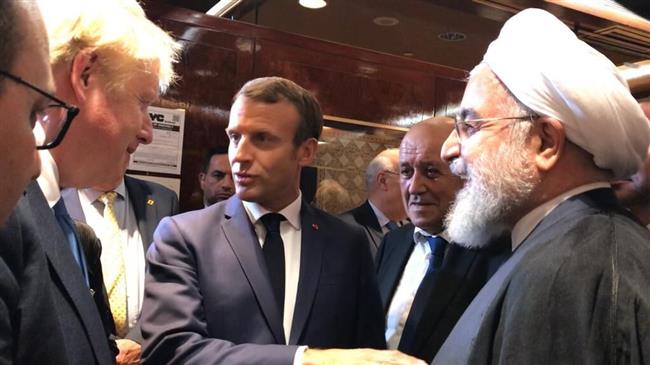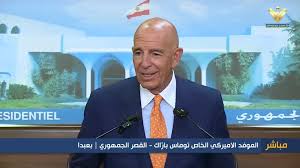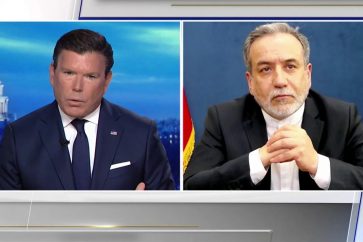French President Emmanuel Macron says Iran, the United States, the remaining parties to the landmark 2015 Iran nuclear deal, officially known as the Joint Comprehensive Plan of Action (JCPOA), as well as Persian Gulf states should engage in talks, demanding preservation of the atomic agreement.
“Well more than ever, I very sincerely and profoundly believe that the time has come to resume negotiations between the United States of America, Iran, the signatories of the JCPOA, and the countries of the region which are first and foremost affected by the security and stability,” Macron said in a speech at the 74th session of the UN General Assembly in New York on Tuesday.
The French leader then laid out four conditions for such talks.
“So what should be the conditions, the terms, the goals and the targets of these negotiations? First of all, the certainty that Iran never acquired developed nuclear weapons. Secondly, a solution to a crisis in Yemen.
“Thirdly, a regional security plan, which also incorporates the other crises of the region and security of maritime navigation. And finally, a lifting of economic sanctions. I’m not naive at all and I don’t believe in miracles. I believe that it takes courage to build peace. And that is why it’s important for the United States, Iran and the signatories of this agreement to show this courage,” Macron noted.
He said he as neither naive nor believed in miracles, but said it was time to build peace.
“It takes courage to build peace,” Macron said, adding that he would continue his recent efforts to bring all sides to the negotiating table.
France, Britain urge Iran’s Rouhani to meet Trump
Separately, Macron said it would be a lost opportunity if Iranian President Hassan Rouhani left the United States without meeting his American counterpart Donald Trump.
“What is important is that if he leaves the country without meeting with President Trump, this is a lost opportunity. Because he will not come back in a few months. And President Trump will not go to Tehran so they have to meet now,” Macron said during a meeting with Rouhani and British Prime Minister Boris Johnson, according to a UK press pool report.
On September 22, French Foreign Minister Jean-Yves Le Drian told reporters that his country’s main aim at the UN General Assembly meeting was to de-escalate tensions between Iran and the US, rather than arranging a meeting between the two countries’ presidents.
“The meeting between (US) President (Donald) Trump and (Iranian) President (Hassan) Rouhani is not the number one subject,” the top French diplomat said.
“The priority subject is whether we can restart a de-escalation path with the different actors,” he added.
In recent months, Macron has taken the lead in a European effort to save the JCPOA and ease tensions between Washington and Tehran.
In May 2018, the US president withdrew his country from the multilateral deal, and re-imposed sanctions against the Islamic Republic.
Iran waited for a year to see if Europe can compensate for the US withdrawal; however, in May 2019 it finally decided to start scaling back its commitments under the nuclear deal.
France has offered a credit line of $15 billion, which will guarantee the sale of Iran’s crude oil, as an incentive to bring back Iran to the JCPOA. However, the offer has yet to be finalized.
Meanwhile, Rouhani and Johnson on Tuesday held talks on the sides of the UN General Assembly. They discussed Middle East developments, the JCPOA as well as international issues.
The British premier invited the Iranian president to London for closer bilateral talks, demanding progress in the case of British nationals detained in Iran.
Rouhani also held talks on the sidelines of the United Nations General Assembly with Japanese Prime Minister Shinzo Abe.
The Iranian president referred to Abe’s recent visit to Tehran, and stressed swift implementation of agreements signed during the visit.
He also appreciated the Japanese government’s efforts to save the JCPOA, and stressed further promotion of economic relations between the two countries.
“Japan has fallen victim to nuclear weapons and Iran has been a victim of chemical warfare. Therefore, both of them are opposed to weapons of mass destruction. Such a commonality will further cement bonds between the two countries and consolidate their resolve to protect stability and security,” Rouhani said.
Abe, for his part, expressed concern about the escalating tensions in the Middle East region, and urged Rouhani to try to prevent the situation from deteriorating further.
He said Leader of the Islamic Revolution Ayatollah Seyyed Ali Khamenei told him in June that Iran will neither “make, possess nor use” nuclear weapons.
Abe also welcomed Rouhani’s proposal for regional cooperation to ensure peace in the strategic Strait of Hormuz, dubbed “Hormuz Peace Initiative.”
“Tokyo is Iran’s long-standing friend and will do its best to reduce tensions in the region,” the Japanese prime minister said.
Source: Press TV




